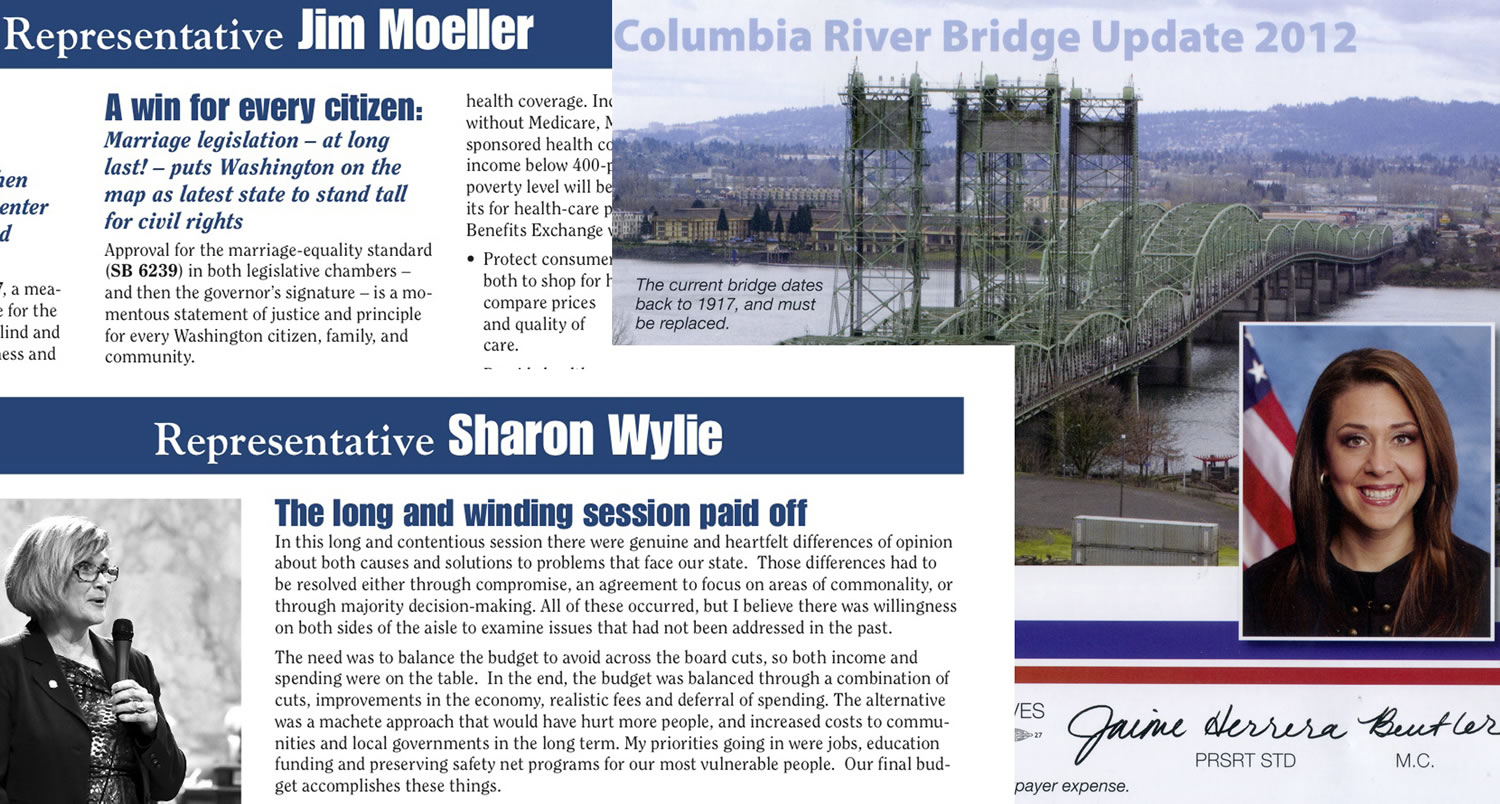State lawmakers from Clark County get a budget of roughly $15,000 to $25,000 for constituent communication, including printing, postage and even the cost to conduct telephone town halls. In the House, that budget amount is based on the number of voters in each legislative district. In the Senate, all senators receive the same allotment, but the amount they get has shrunk during the past few years because of an emphasis on limited government spending.
Notable spenders when it came to constituent communication costs include Rep. Sharon Wylie, D-Vancouver, who spent about $13,800 during the 2011-2012 House term, and Rep. Paul Harris, R-Vancouver, who spent about $9,900 in the same two-year period. In the other chamber, Sen. Don Benton, R-Vancouver, spent about $61,500 during the 2009-12 term while Sen. Craig Pridemore, D-Vancouver, spent more than $37,000 during the same four-year term. (See the chart with this story to learn how much each lawmaker spent.)
The freeze on the mass mailing state legislators can send in the year leading up to an election still allows them to send some pieces of information to constituents. They can send out two newsletters about the legislative session that year; the first one must be sent out within the first 30 days of the start of the session while the second one can be sent out no later than 60 days following the end of the session.
The freeze also still allows them to reply by mail to constituents who contact them, and to send congratulatory mail to people in their district who make noteworthy accomplishments, such as an Eagle Scout award. When lawmakers are not up for re-election that year, they are only limited by their budget on how much mail they send out and when.




